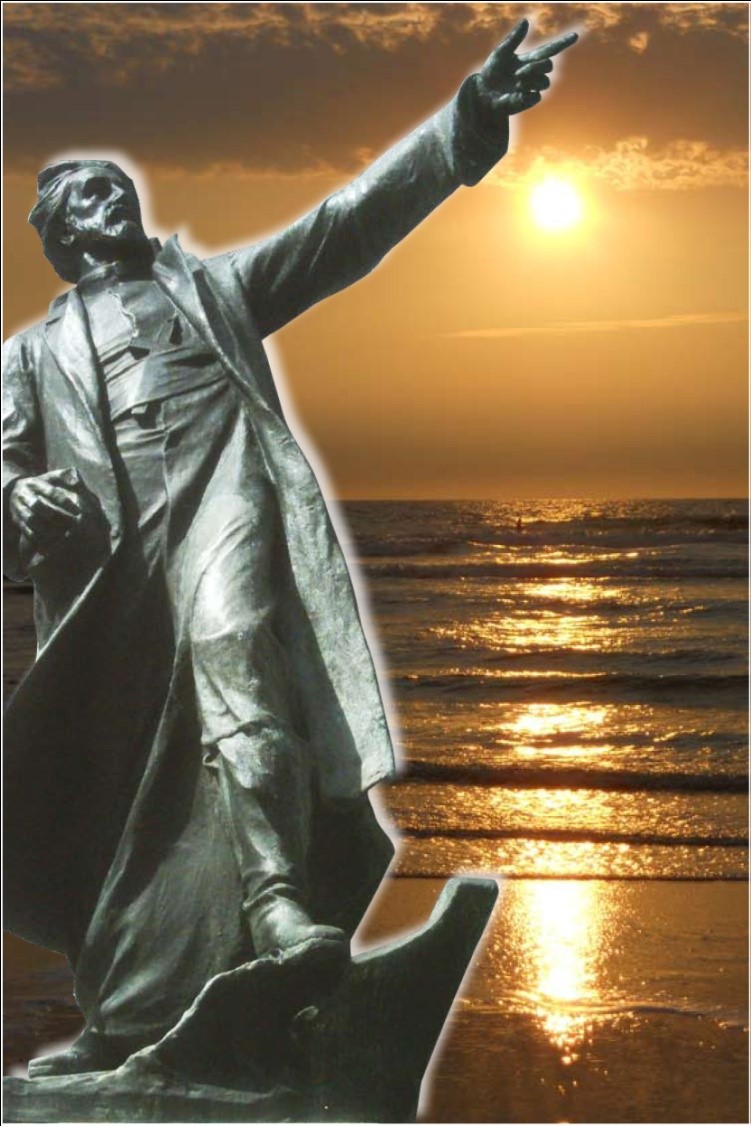In opposition to all those who deny Tradition by merely retaining it as a hollowed-out word, Ignatians will defend it as the very life-spring of Catholicism, as the very guardian of the Church’s future. For Tradition is not about the past: it’s about the Perennial, the Undying, the Eternal. Its about the eternally valid; the roots of all that flowers in the Church (“only artificial flowers need have no roots” as G. Thibon rightly stated); we conserve not the passing fashions of yesteryear but the eternal truths and all that can encase and safeguard these pearls of great price for which we must sell all else.
“Tradition” is not “traditionalism” understood as indiscriminate, merely emotional, ideological love of the past simply because it is the past; of socio-political ideologies irrationally adhered to. No! They are in love with all the traditions which as pure cristalline waters, flow from the Fountain of Catholic Truth. These traditions are the usages and customs – disciplinary, devotional and above all, liturgical – which enshrine and protect, enlighten and strengthen in men’s minds and hearts, the great Tradition. They are to be treated with all the awe, veneration and respect that the heart and mind of a great human being is to be respected for they all originate in the hearts of our forefathers of yesteryear, our brothers and sisters in Christ, men and women often of heroism and genius sprung from the heroism and genius of history’s greatest Hero and Genius.
In the light of this importance of Tradition, all traditions are then to be weighed.
First and foremost there are the liturgical traditions which, in the light of the role of the liturgy as the mouthpiece of Catholic truth, requires veneration and the most sensitive of handling. In particular the sacred liturgy since “lex orandi, lex credendi”; it is in the public prayer of the Church that one readily discovers what it holds to be the truth, as many a convert to the Church has demonstrated.
Secondly, this means that Ignatians will have great respect for “popular religion”, for the “common man’s” religion because Ignatians consider themselves to be common men, men of the people, called to strengthen the faith of the people. They will therefore uphold in their parishes the devotions to local saints; cherish the sacramentals; continue long-standing practices.
Thirdly, love for Tradition means that we as Ignatians measure theological theories by the dogmas of the Faith. Since Tradition is the foundational truths of Catholicism, this will not inhibit Ignatian theologians from being at the service of the Church’s mission to ever understand more deeply the implications of the divinely revealed truths. Such exquisite fidelity to the Magisterium of the Church did not inhibit or impede the most brilliant and influential theologians the Church has had in two millennia: St. Augustine and St. Thomas Aquinas. Indeed Ignatian theologians and philosophers will strive to be on the cutting edge of research and intellectual effort in order to more effectively plumb the riches of the Faith and communicate the Faith in the most effective way possible to the men and women of each epoch. However, it will imply an exquisite sensitivity to never contradict and never to cause disquiet, confusion among the lay faithful by proposing theological opinions that are mere opinions. Any danger of stagnation and of mistaking fidelity to the Tradition with mere intellectual stagnation will also be obviated by the fact of the Ignatian’s thorough and frequently long intellectual preparation, with all Ignatians taking out a doctorate or at least two masters degrees in philosophy or theology.
Fourthly the Ignatian looks to the Saints, the giants of the Church, the revolutionaries of the Cross, who built up the Mystical Body of Christ and show forth its beauty in all its splendor. Each day, as we pray the traditional Divinum Officium of the Church, we will be inspired by them during the reading of the Roman Martyrology.
Fifthly, the Ignatian looks to the great intellectual tradition of the Church, especially the work of St. Thomas Aquinas
Sixthly, a keen appreciation for the study of history since through history we have a deeper and wider vision of good and evil, the true, the false, the beautiful and the ugly in order to repeat, magnify and make progress in truth, goodness and beauty and in order to protect ourselves from the tragedy of falling into the same evils and lies once again.

